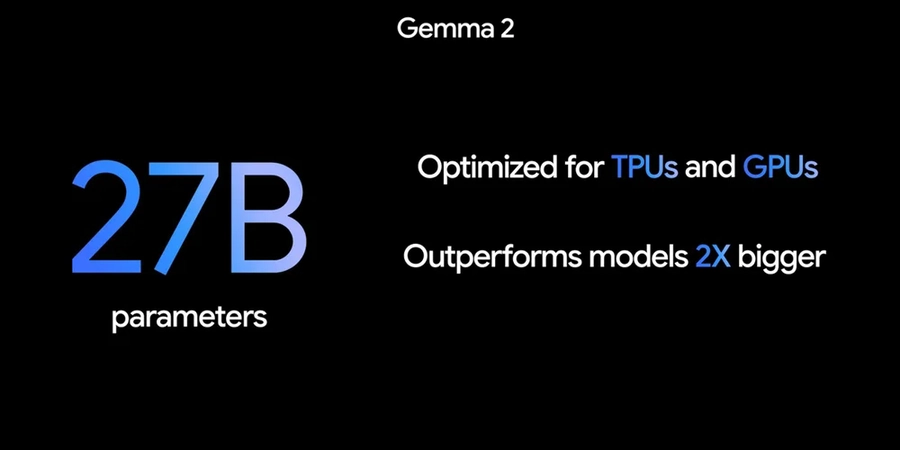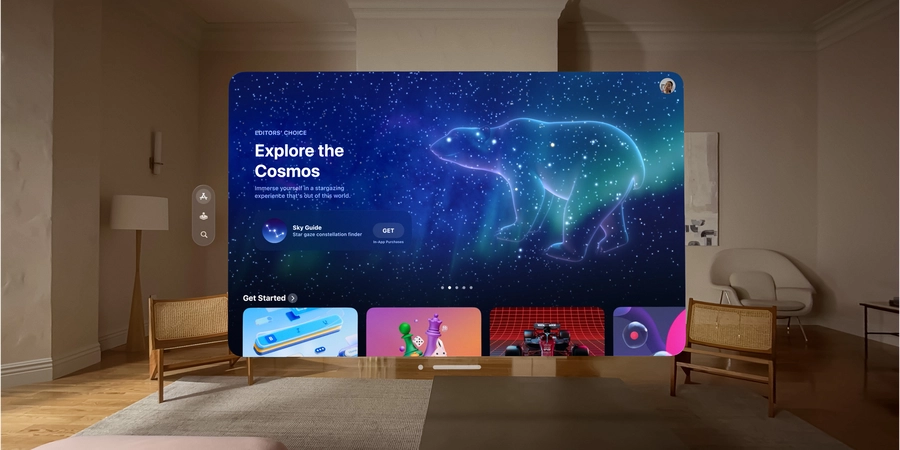# TL;DR
Google I/O 2024 showcased groundbreaking AI-driven innovations, including Gemini Pro, Project Astra, AI Overviews, and the generative video model Veo, enhancing Google Workspace and security features. Despite these advancements, Google faces significant competition from OpenAI, which recently launched the GPT-4o model, noted for its superior capabilities and broader platform integration. OpenAI’s proactive strategies and developer-friendly approach have positioned it ahead in the AI race, challenging Google to innovate responsibly while addressing ethical and environmental concerns. Entrepreneurs should embrace these AI advancements to stay competitive in the evolving tech landscape.
# Introduction
Google I/O 2024, the tech giant’s annual developer conference, was a spectacle of cutting-edge innovations and AI-driven advancements. Held from May 14-16, the event unveiled a plethora of announcements poised to redefine the technology and digital entrepreneurship landscape. Despite the impressive array of new features and products, Google faces significant challenges in the AI arena, particularly from OpenAI, which launched its GPT-4o model just a day before Google I/O. This article highlights the key announcements from Google I/O 2024 and explores why Google is perceived to be trailing OpenAI in the AI race.
# Key Announcements from Google I/O 2024
# AI-Powered Innovations
-
Gemini Pro and Project Astra
- Google introduced Gemini Pro, an advanced AI model capable of processing vast amounts of data, including text, video, and audio. This model is designed to enhance various Google products, from search to smart assistants.
- Project Astra, a multimodal chatbot, represents a future vision for AI that processes sight, sounds, voice, and text in unison. This project aims to integrate AI seamlessly into everyday life, with potential applications in smart glasses for real-time assistance.
-
AI Overviews in Search
- Google unveiled AI Overviews, a feature providing AI-generated summaries at the top of search results. This innovation aims to deliver quick, concise answers to complex queries, though it has raised concerns about the accuracy and trustworthiness of the information provided.
-
Generative Media Models
- The conference showcased advancements in generative media, including the introduction of Veo, a generative video model capable of creating high-quality 1080p videos from text, image, and video prompts. This tool is expected to revolutionize content creation by offering unprecedented creative control to users.
-
AI in Google Workspace
- Google introduced new AI helpers across its Workspace apps, designed to assist with tasks such as drafting emails, summarizing documents, and generating action items. These tools aim to boost productivity and streamline workflows for businesses and individuals alike.
# Security and Privacy Enhancements
-
On-Device AI for Security
- Google Play Protect now uses on-device AI to detect and prevent fraudulent apps and phishing attempts. This enhancement is part of Google’s broader effort to improve security and privacy for Android users.
-
Private Space on Android
- A new feature called Private Space was introduced, allowing users to create a partitioned area on their devices for sensitive information. This feature adds an extra layer of security and privacy, ensuring personal data remains protected.
# Augmented Reality and Wearables
-
Geospatial AR in Google Maps
- Google Maps will soon feature geospatial augmented reality content, enabling users to explore AR experiences by searching for locations and viewing AR content on their devices. This pilot program is set to launch later this year.
-
Wear OS 5
- The latest version of Google’s smartwatch operating system, Wear OS 5, focuses on improved battery life and performance. New tools for developers and enhanced workout tracking capabilities were also announced, marking a significant upgrade for wearable technology.
# Developer Tools and Platforms
-
Firebase Genkit and Data Connect
- Firebase introduced Firebase Genkit, a new tool to help developers build generative AI experiences into their apps. Additionally, Firebase Data Connect allows developers to use SQL with Firebase, reducing the amount of code needed and streamlining app development.
-
Gemini Nano for Scam Detection
- Google previewed a feature that uses Gemini Nano, the smallest version of its generative AI, to detect potential scams during phone calls. This real-time detection system aims to protect users from fraudulent activities.
# Why Google is Losing the AI War to OpenAI
Despite the impressive announcements at Google I/O 2024, Google is perceived to be lagging behind OpenAI in the AI race. Here are some key reasons why:
# OpenAI’s Strategic Moves
-
Launch of GPT-4o
- OpenAI’s GPT-4o, launched just a day before Google I/O, is a faster and more capable iteration of the GPT-4 model. It is natively multimodal, generating content and understanding commands in voice, text, or images. This model is also free for all ChatGPT users, making advanced AI accessible to a broader audience.
-
Integration with Popular Platforms
- OpenAI has successfully integrated its models into widely used platforms such as Microsoft’s Bing and various third-party applications like Duolingo, Stripe, and Khan Academy. This widespread adoption has given OpenAI a significant edge in terms of real-world application and user base.
-
Focus on Developer Accessibility
- OpenAI has made its models available through APIs, allowing developers to build on its technology. This approach has fostered a vibrant ecosystem of applications and innovations, further solidifying OpenAI’s position as a leader in the AI space.
# Google’s Challenges
-
Perception of Playing Catch-Up
- Google’s AI announcements, while impressive, often come across as reactive rather than proactive. For instance, the introduction of Gemini and Project Astra seems to be a response to OpenAI’s advancements rather than groundbreaking innovations in their own right.
-
Concerns About AI Accuracy and Trustworthiness
- Google’s AI Overviews feature has raised concerns about the accuracy and reliability of AI-generated information. The absence of disclaimers for potential inaccuracies in AI Overviews has led to skepticism about the trustworthiness of Google’s AI solutions.
-
Environmental and Ethical Considerations
- The race to develop high-performance AI models has significant environmental implications. Training large language models requires substantial computational power, leading to increased energy consumption and carbon emissions. While both Google and OpenAI are working towards reducing their environmental footprint, the ethical considerations of AI development remain a critical challenge.
# Conclusion
Google I/O 2024 showcased a range of innovative AI-driven products and features poised to transform the tech landscape. From advanced AI models like Gemini Pro and Project Astra to enhanced security and privacy features, Google demonstrated its commitment to leveraging AI for a better user experience. However, the perception that Google is losing the AI war to OpenAI persists, primarily due to OpenAI’s strategic moves, broader adoption, and proactive approach to AI development.
For entrepreneurs, the key takeaway from Google I/O 2024 is the importance of staying ahead of the curve in the rapidly evolving AI landscape. Embracing AI-driven tools and technologies can provide a competitive edge, but it is equally crucial to address the ethical and environmental considerations associated with AI development. As the AI race continues to heat up, the ability to innovate responsibly and sustainably will be the defining factor for success in the digital age.
# Further Reading Resources
If you are interested in exploring more about the topics discussed in this article, here are some valuable resources:
- OpenAI unveils newest AI model, GPT-4o | CNN Business
- The Real Environmental Impact of AI - Earth.Org
- AI’s impact on environment | Digital Watch Observatory
- AI’s Climate Impact Goes beyond Its Emissions - Scientific American
- The Environmental Impact of AI
- Introducing GPT-4o - YouTube
- What is OpenAI’s GPT-4o? Launch Date, How it Works, Use Cases …
- OpenAI releases GPT-4o, a faster model that’s free for all ChatGPT users
- Hello GPT-4o | OpenAI
- OpenAI launches new AI model, GPT-4o and ChatGPT for desktop
- Google I/O 2024
- Google AI Overviews: Everything You Need to Know (and Think About)
- 100 things we announced at I/O 2024 - The Keyword
- Google apologizes for ‘missing the mark’ after Gemini generated …
- What is the Environmental Impact of AI? - Greenly
- Did you know, training a single AI model can emit as much carbon …
- AI’s Impact on the Environment - AI for Education
- Perspectives on Issues in AI Governance - Google AI






